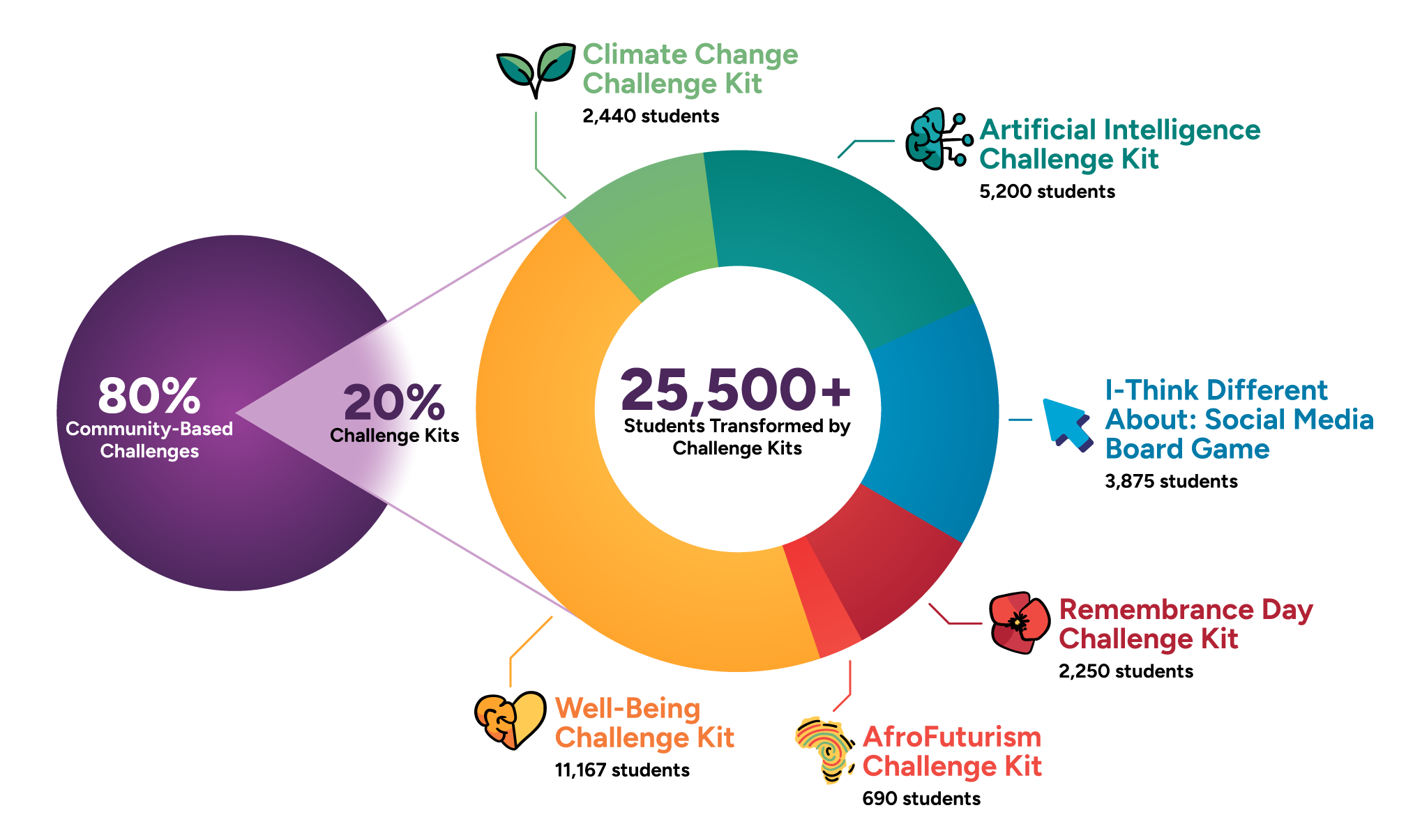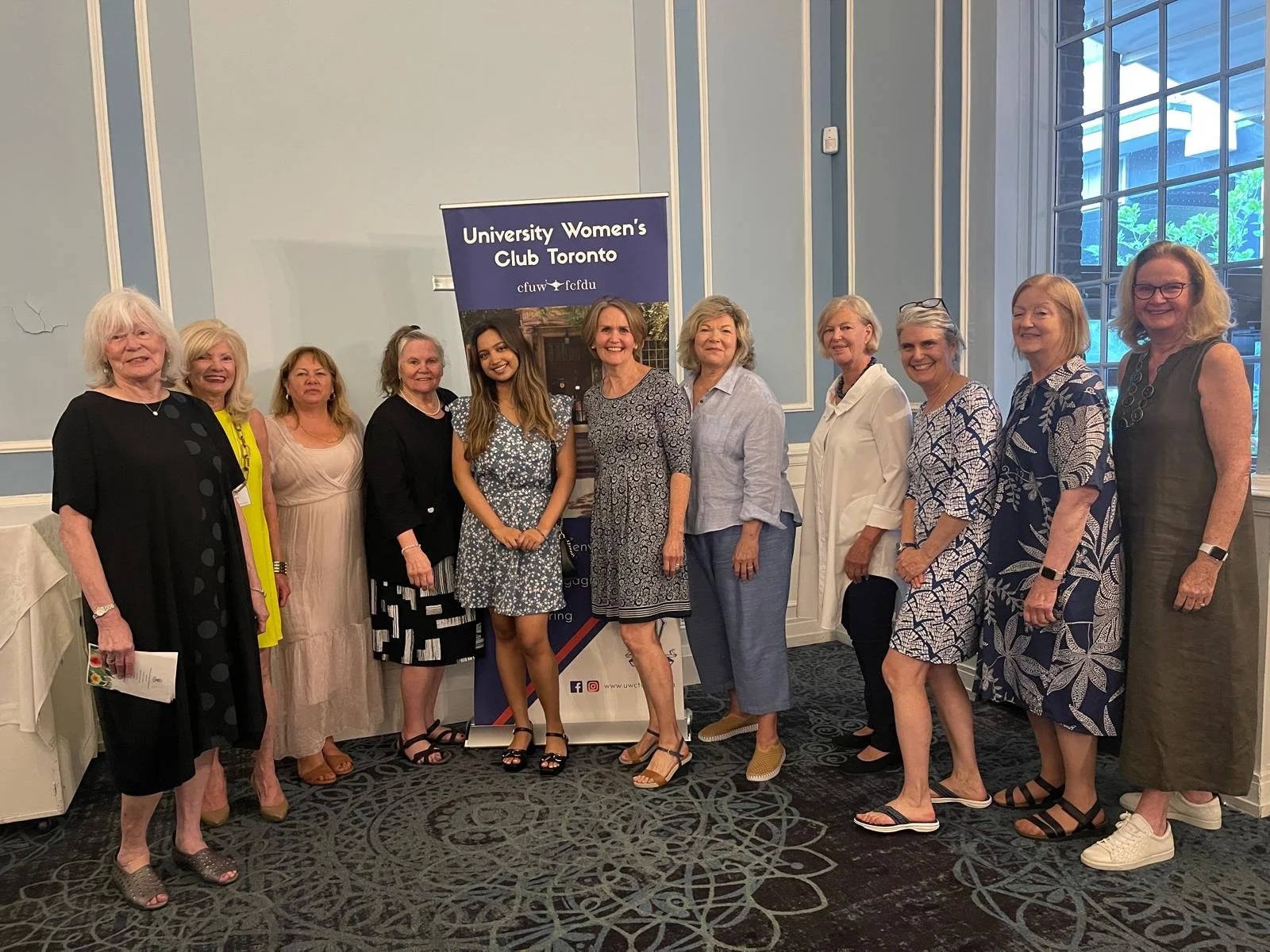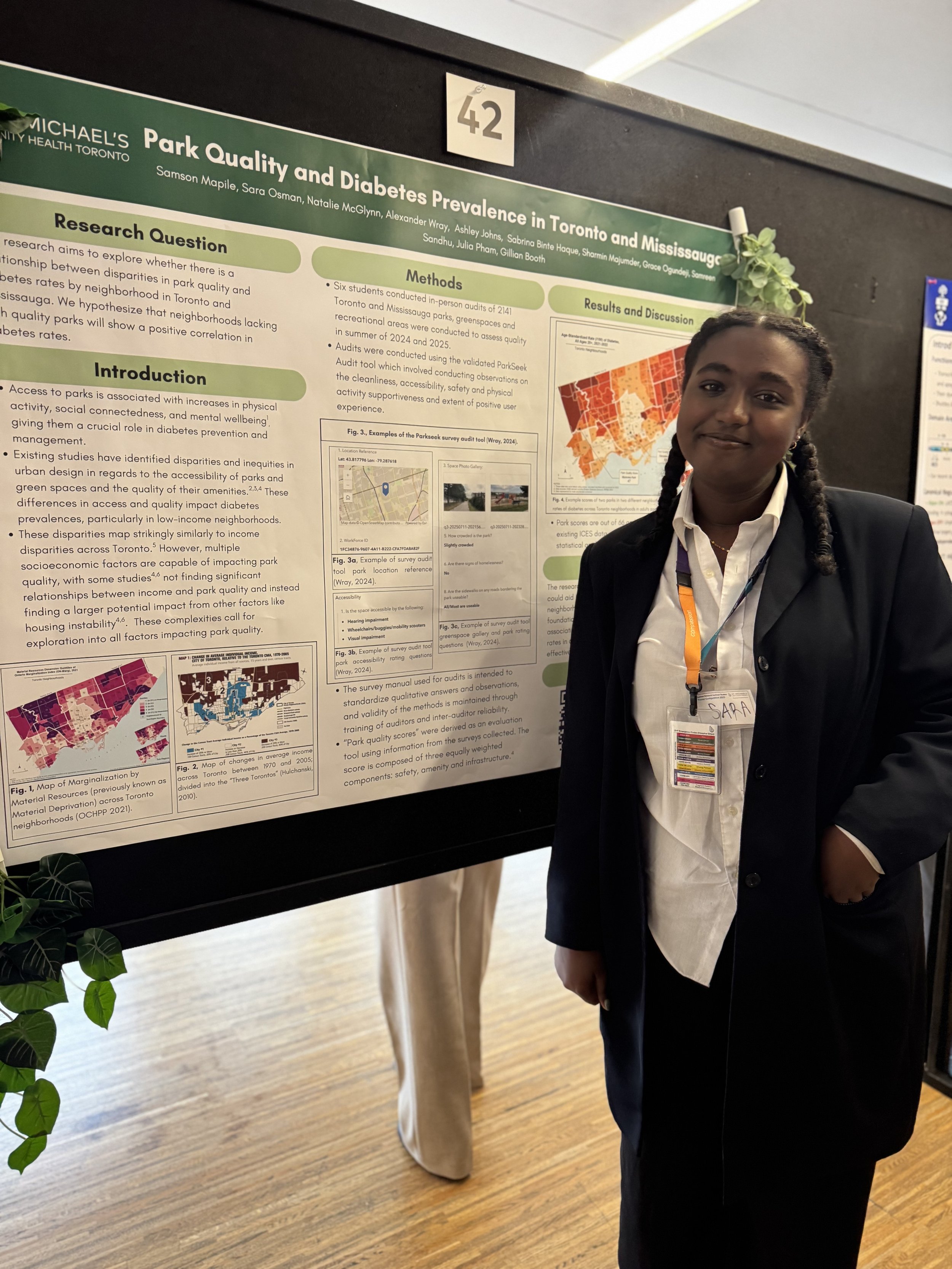
Scalable Impact
I-Think is a leader in thinking and learning innovation. We teach how to leverage tension to create a culture of critical thinking and creativity. Explore the research and experiences that have made I-Think a partner to schools, school boards and the Ontario Ministry of Education for over 15 years.
150,000+
students who can build from tension by listening to and learning from differing perspectives.
5,000+
educators who have changed their teaching and leading, prioritizing skills for the future.
400+
communities and organizations strengthened with the novel recommendations from students
We need a generation of young people, who in the face of polarization, have the ability to navigate tension and create in the face of a world that too often demands quick, rigid answers. We need young people who are agile, resilient and have the confidence to engage in the future unafraid of opposing perspectives and ideas. We need critical thinkers. At I-Think we’re making this possible.

When asked if they would use Integrative Thinking again with their students, 97% of teachers said yes!
Our research shows that students demonstrate improvements in all areas that are vital to student achievement.
ENGAGEMENT
+22%
capacity to imagine possibilities beyond the current constraints and realities, tenacity when approaching complex challenges
MATTERING
+27%
ability to demonstrate an understanding of their interdependence as a collective of thinkers and problem-solvers
ACCOMPLISHMENT
+20%
complex understanding of ideas and concepts and ability to challenge their assumptions and misconceptions
Meet I-Think Alumni

Impact Research Study
Our Challenge Kit impact research was conducted by Dr. Maria Vamvalis. The data demonstrated impact along several themes, including:
The research paper found that students using Challenge Kits experienced:
1. Better Thinking
Educators noted an increase in the quality, creativity, and innovative thinking students demonstrated when using I-Think tools, observing deeper insight and more expansive reasoning.
2. Increased Engagement
Data consistently highlighted the impact of authentic, real-world problem solving and empathy on engagement. Teachers and students found the learning meaningful, also noting accountability as a key driver of student thinking.
3. Student Leadership and Well-being
Quantitative data showed gains in student well-being and proactive social behaviors, with 17–27% increases in recognizing interdependence and a 22% rise in imagining possibilities beyond current constraints. Teachers observed heightened confidence, leadership, and engagement in community-focused problem solving.
“Problem-solving skills are crucial in daily life, and reimagining offers new opportunities and experiences… enabling [students] to train their abilities and access hidden solutions as something I can do.”
- Student, Middle School
“As a class, we all took risks, shared our thinking and learned together. It was a great collaborative piece that was extremely meaningful for everyone because it was authentic. They were solving a real-world problem, for a real organization. They had a real audience for their work.”
- Teacher, Elementary School
“When they see that people in the community [would] benefit from their voice, it is a sense of being respected by community members, by adults, makes them feel valuable [and] helps them to see that they are valuable.”
- Teacher, Elementary School
authentic, real-world problem solving that fostered critical, creative, and collaborative thinking;
increased agency, confidence, and well-being through the application of Integrative Thinking tools;
opportunities to make thoughtful decisions and take purposeful action in the classroom; and
deeper understanding and engagement through the investigation of real-world problems, supported by professional learning communities that encouraged growth and innovation.
Together, these approaches transform classrooms into “places of possibility” (bell hooks, 1994) where students imagine and actively shape new futures.
Hear From I-Think Alumni









